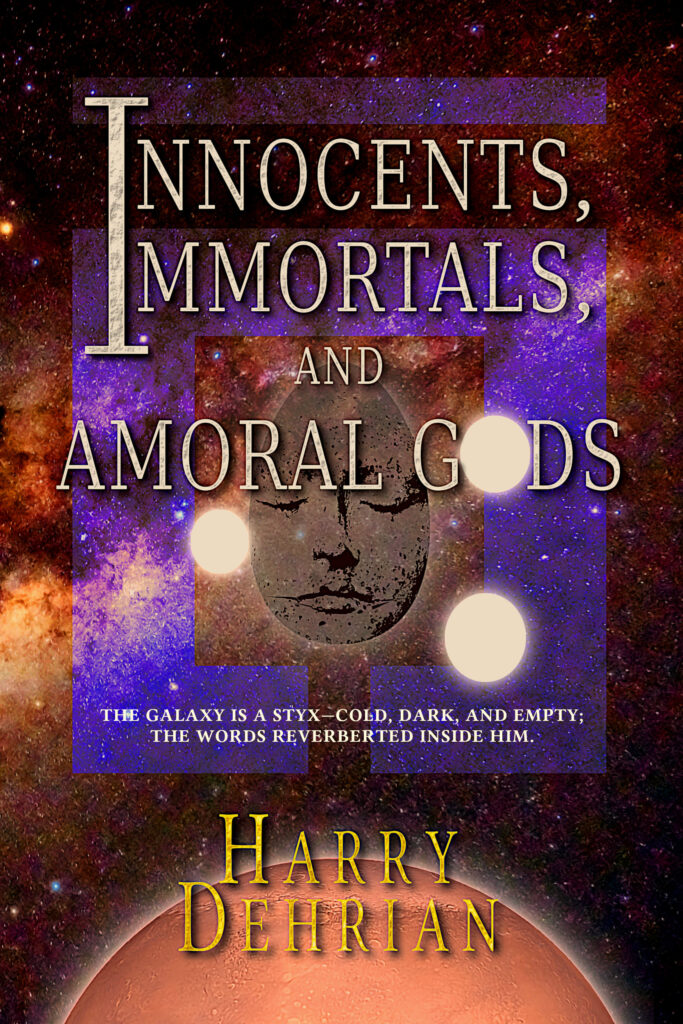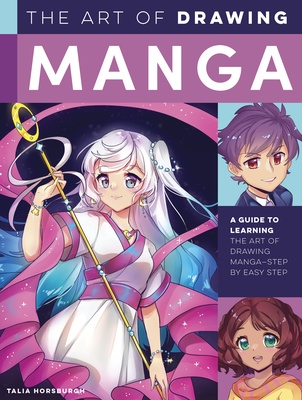
In Innocents, Immortals, and Amoral Gods, Harry Dehrian narrates a large, busy tale that merges sci-fi and fantasy elements, presenting readers with multiple quests and challenges to follow. From political battles between worlds and economic classes to amazing technologies and intense fight scenes, Harry creates a busy plot that’s woven around various characters.
One is Queen Meiral, who is very critical about the people around her. Dev investigates the poison used on Sufina and others while improvising as quickly as he can. Sufina Hozak, as a Daune Reesh, faces the challenges of being seen as manipulative and self-serving. Warson seeks to end the terror of Governor Jaa and plots an attack plan with Marson. Whether they’re traveling between planets or moving from one part of a planet to the other, Harry’s characters meet various monumental challenges in their daunting journeys.
I liked that the book’s vast themes opened my mind to several interesting ideas, including how “mortals always have a set of beliefs, and those beliefs have no basis.” Like Baelin, I’ve always wondered about and never found an answer to the question, “What is a soul?”
The book is filled with peculiar characters and distinct traits. The queen appears to be a snob since she makes condescending remarks, like “That pleb at the palace” and “All of you children have been such disappointments.” Dev doesn’t hesitate to lie to get what he wants as he delves into complex clues and seeks answers.
I disliked the confusing nature of the plot. It contains so many characters and missions that finding out how they’re all connected proves to be a rather unpleasant task. For example, a page in the book brings our attention to eight different characters: Disa, Okla, Orlan, Kona, Bilo, Eaviras, Oni, and Nora. Also, several viewpoints are not maintained long enough to create a sense of familiarity.
Another notable flaw is that the themes are not well maintained. I found it disconcerting that I had no clue about the next theme I would see in the narrative since they appear sporadically, from wars and politics to a poison investigation and clever technology.
Overall, Innocents, Immortals, and Amoral Gods seemed excessively busy and appears to neglect some compelling elements. Readers like me who appreciate clear connections between characters and consistent themes might find it somewhat cumbersome. However, I imagine it would be more enjoyable with shorter plots because it has many promising mini stories.
One is Queen Meiral, who is very critical about the people around her. Dev investigates the poison used on Sufina and others while improvising as quickly as he can. Sufina Hozak, as a Daune Reesh, faces the challenges of being seen as manipulative and self-serving. Warson seeks to end the terror of Governor Jaa and plots an attack plan with Marson. Whether they’re traveling between planets or moving from one part of a planet to the other, Harry’s characters meet various monumental challenges in their daunting journeys.
I liked that the book’s vast themes opened my mind to several interesting ideas, including how “mortals always have a set of beliefs, and those beliefs have no basis.” Like Baelin, I’ve always wondered about and never found an answer to the question, “What is a soul?”
The book is filled with peculiar characters and distinct traits. The queen appears to be a snob since she makes condescending remarks, like “That pleb at the palace” and “All of you children have been such disappointments.” Dev doesn’t hesitate to lie to get what he wants as he delves into complex clues and seeks answers.
I disliked the confusing nature of the plot. It contains so many characters and missions that finding out how they’re all connected proves to be a rather unpleasant task. For example, a page in the book brings our attention to eight different characters: Disa, Okla, Orlan, Kona, Bilo, Eaviras, Oni, and Nora. Also, several viewpoints are not maintained long enough to create a sense of familiarity.
Another notable flaw is that the themes are not well maintained. I found it disconcerting that I had no clue about the next theme I would see in the narrative since they appear sporadically, from wars and politics to a poison investigation and clever technology.
Overall, Innocents, Immortals, and Amoral Gods seemed excessively busy and appears to neglect some compelling elements. Readers like me who appreciate clear connections between characters and consistent themes might find it somewhat cumbersome. However, I imagine it would be more enjoyable with shorter plots because it has many promising mini stories.



